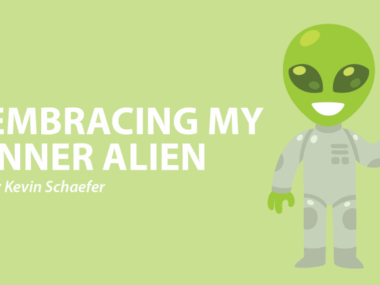The quiet miracle of still living with SMA
Survival isn't just about getting through a crisis, but dealing with the aftermath
Written by |

Living with spinal muscular atrophy (SMA) means my body doesn’t always warn me before it spirals into crisis. One minute, I’m sleeping peacefully. The next, I jolt up, gasping for air.
My ventilator blares, its alarm shrill and relentless. Another mucus plug. Again? Someone will be here soon. I tell myself that. I must believe that. But the alarm keeps screaming, and no footsteps echo down the stairs. Seconds stretch like hours. Why isn’t anyone coming?
Breathing gets harder. My chest tightens. I can’t hold on much longer.
Tears run down my face as I whisper, desperate, “God, please … don’t let me go.”
Any second now, Mom will burst through the door and save me. She always does.
But my heartbeat slows.
My vision fades.
Darkness swallows everything.
I miraculously regain consciousness after Mom jumps into action and suctions me. But confusion crashes over me like a wave. Strangers in navy uniforms surround me. EMTs? I blink rapidly, trying to make sense of the flashing lights, the indistinct chatter, and the equipment. Someone is standing over me, manually pumping air into my lungs with an Ambu bag.
Mom starts freaking out again when she realizes my LTV vent settings are altered and need to be fixed. Great.
As the medics load me up to head to the local emergency room, I feel a familiar sense of annoyance. I’m breathing now. I’m conscious. Why the hell are we still going to the hospital? To make it worse, I have to be Ambu-bagged the entire way there because the ventilator is malfunctioning.
Upon my arrival at the hospital, the respiratory therapist immediately puts me on their ventilator, which I never do well with. Nonetheless, they adjust the settings so that I’m comfortable enough to avoid experiencing respiratory distress again. In the meantime, Mom tries her best to get my LTV vent settings back to normal. She gets them to a point where they’re good enough for the ride home, but things are still very off.
We make it home eventually, but the relief is shallow. It’s not over, not really. My body is upright, my lungs are working, but my trust in everything — my equipment, the system, even my own stability — is fractured. I can’t stop thinking, what if this happens again? What if no one makes it in time next time?
Part of me feels angry at the system for not having better safeguards, at my own body for betraying me yet again. I want to scream, but there’s no one to scream at. That’s the cruelty of it. I’ve been handed this body that demands constant crisis management, with no manual on how to survive it emotionally.
What no one discusses is the significant emotional labor required to survive with SMA. You don’t just get through a crisis and move on. You repeat it over and over in your head. You dissect every second, wondering what could’ve gone differently. You memorize the details, try to prevent it from happening again, even when you know you can’t. You brace for the next emergency before your body has even recovered from the last. It’s not just physically draining, but soul-deep exhausting. And most days, no one sees that part. They see survival, not the weight of constantly preparing for disaster.
I wish I could wrap this all up with a perfect ending, say that I’ve made peace with my body, or that the alarms no longer rattle me. But that wouldn’t be honest. The truth is, I’m still learning how to live in a body that holds both fragility and fight. I’m still figuring out how to soften around the fear without letting it consume me.
Some days, I carry it well. Other days, it carries me.
But what I know for sure is this: Surviving isn’t just about getting through the night. It’s about finding meaning in the aftermath. It’s about honoring the parts of me that are scared, tired, and angry, and still choosing to show up anyway.
Life can be complicated, unpredictable, and even cruel at times. But it is also sacred. And as long as I’m here, I’ll keep breathing life into the spaces where silence once lived. I’ll keep telling the truth, even when it trembles, because my story doesn’t end with fear. It begins — again and again — with the quiet, stubborn miracle of still being here.
Note: SMA News Today is strictly a news and information website about the disease. It does not provide medical advice, diagnosis, or treatment. This content is not intended to be a substitute for professional medical advice, diagnosis, or treatment. Always seek the advice of your physician or other qualified health provider with any questions you may have regarding a medical condition. Never disregard professional medical advice or delay in seeking it because of something you have read on this website. The opinions expressed in this column are not those of SMA News Today or its parent company, Bionews, and are intended to spark discussion about issues pertaining to spinal muscular atrophy.





Sandra Smith
This was deep daughter...
And I agree with you 💯 percent, it is very scary to have it running through your mind . I feel the same way. But with each disaster gives me as your mother new ways to prepare foe the next time. God willing there won't be a next time.🙏❤️
As long as im breathing i will be here for you.
Julie
Thank you for sharing your story and experience. It is really strong and well written and made a big impact on me. Please keep sharing and writing!
Meghan
Jasmine,
What a truly honest and expressed beautifully truth. Although I personally do not have the breathing issues you so gallantly ride with, the experience, the fear, the reliving of events, the known fact that this or similar will happen again is what I do as well. We live a difficult life, and as much as we may sound strong and positive that fear and concern is our a personality trait of our mind, my co-pilot.
Thank you for sharing a truth that all of us experience in some way or another. Thank you for saying what I have thought for years. Thank you for reminding me by saying: “…my story doesn’t end with fear. it begins – again and again – with a quiet, stubborn miracle of still being here.“